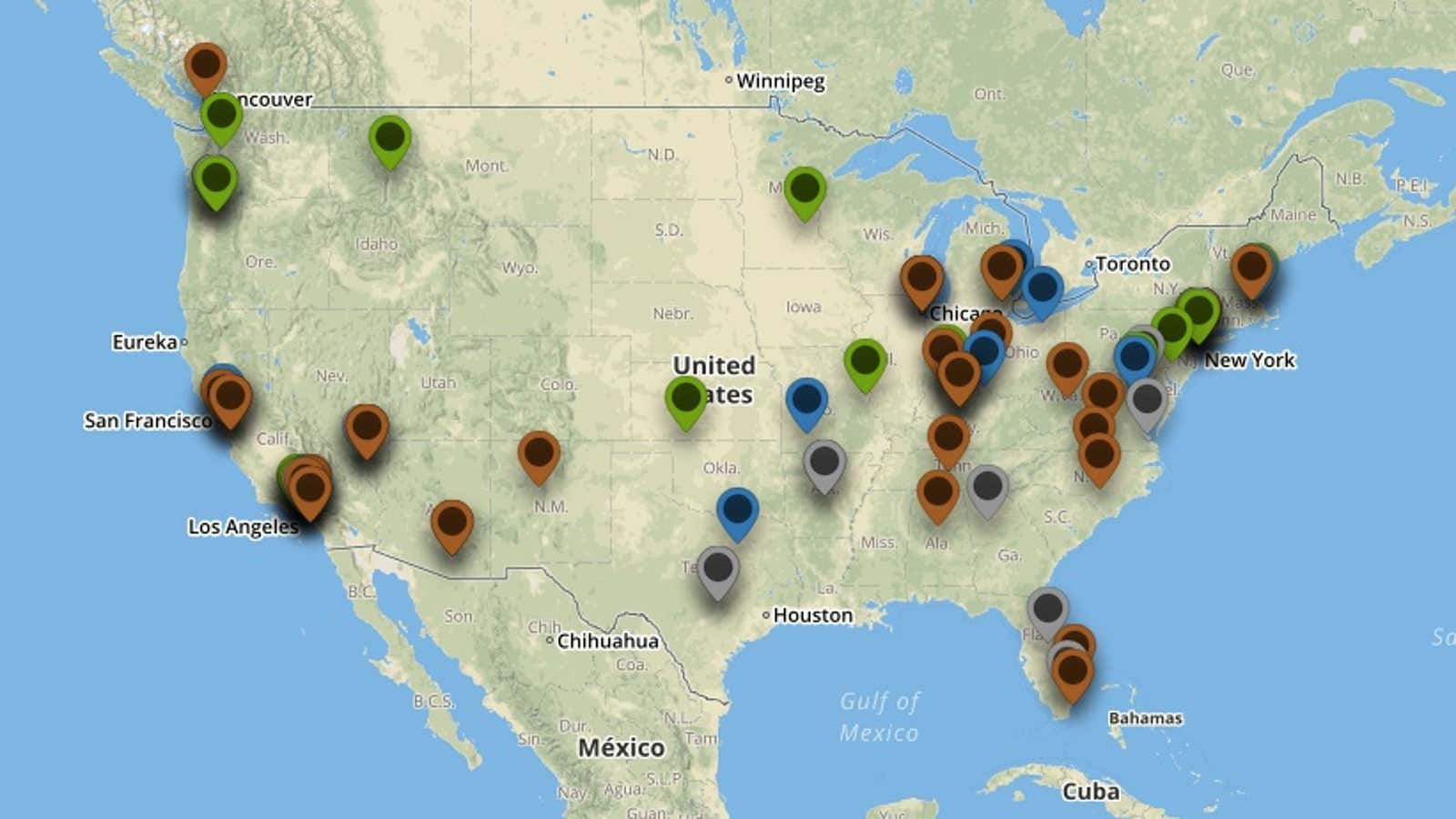*This post was updated with Ushahidi’s second statement.
Daudi Were, the executive director of the Kenyan software company Ushahidi, was fired by the board today (July 22) following an investigation into sexual harassment claims lodged by Angela Kabari, a former employee of the company.
Kabari had complained that Were had made lewd comments and told her to have sex with another colleague while on a retreat in January. Kabari published the details of that night in a damning post last week, revealing the psychosomatic effect it had on her, which led to her quitting her job.
Kabari also said she had heard stories from eleven other women who had similar unpleasant encounters with the same person, showing that he had “years’ long, widely-known reputation for sexually inappropriate conduct, socially and at work.” These women narrated incidents where he had allegedly exposed his genitalia, sent inappropriate or suggestive text messages, or pornographic pictures.
Were describes himself on his personal blog as a “Kenyan technology strategist, human rights defender and social activist”. He says his work has supported civil society groups including Kenya Legal & Ethical Issues Network on HIV and AIDS (KELIN), FIDA Kenya, Coalition on Violence Against Women (COVAW) and Women and Law in Southern Africa Research amongst others.
The company named its chief operations officer, Nat Manning, as interim executive director.
Since the revelations came into the public view in early July, Ushahidi has been under the spotlight for failing to take action on the matter quickly—including from one of its own founders. Many also wondered if the company, built on the spirit of activism and transparency in 2008, would be able to withstand such a scandal. Ushahidi, which means “testimony” in Swahili, began out of the chaos that engulfed Kenya following the 2007 post-election violence. The platform was then used to collect testimonies, geo-locate where incidents were taking place, and help coordinate disaster response.
In a separate statement, released after the announcement of Were’s dismissal, the board apologized to Kabari, offering to support her and her work, and committing to instituting changes that would ensure that cases like this don’t occur again. “We would like to sincerely thank you for speaking up and bringing this issue to our attention,” the board said. “Because of you, we will be more vigilant. Because of you, we will effect the necessary changes.”
Kabari had written that the board had censured her decision to seek legal help, had not committed to a transparent process and had provided her with “no opportunity to openly air” her concerns. On July 10, the board publicly declared it was investigating the allegations, and on July 17, provided a chronological timeline of how both parties reported the issue, and engaged legal counsel. In firing Were, the company said in a statement that it had taken all the necessary steps to “ensure fairness and respect” for both parties involved in the case.
“As a company that was founded to enable people to be heard, Ushahidi has zero tolerance for injustice of any kind,” the company said.
